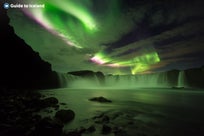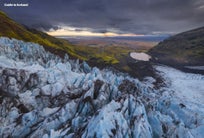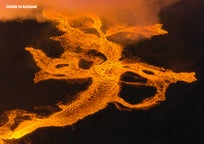
12 Towns to Visit in Iceland’s Eastfjords

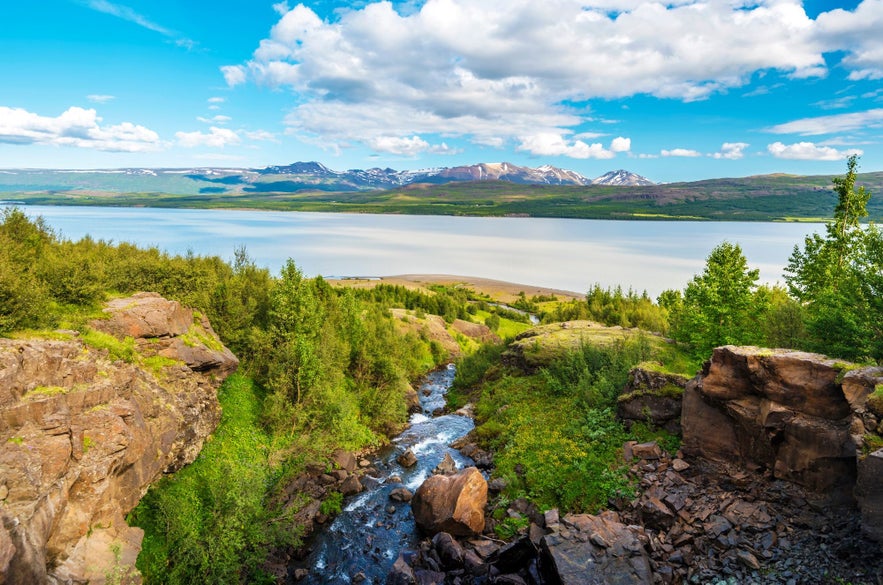
The Eastfjords are a remote part of Iceland characterized by its rugged cliffs, dramatic mountains, and charming small towns. Out of Iceland's total population of 382,000 people, only an estimated 3.5% live in East Iceland. If you plan on visiting this incredible region, make sure to book a hotel in East Iceland and have a base from which to explore this beautiful area.
The Eastfjords are rich in ancient history and untouched nature and have a completely different feel to the rest of the island. Renting a car is the most affordable and easy way to explore the region, as it allows you to choose the best locations to explore and tours to join while in the Eastfjords.
For those seeking off-the-beaten-path adventures, peaceful landscapes, and serenity in pristine nature, the Eastfjords are a must to visit while in Iceland. Read on to learn about 12 towns you should visit in the Eastfjords.
Egilsstadir
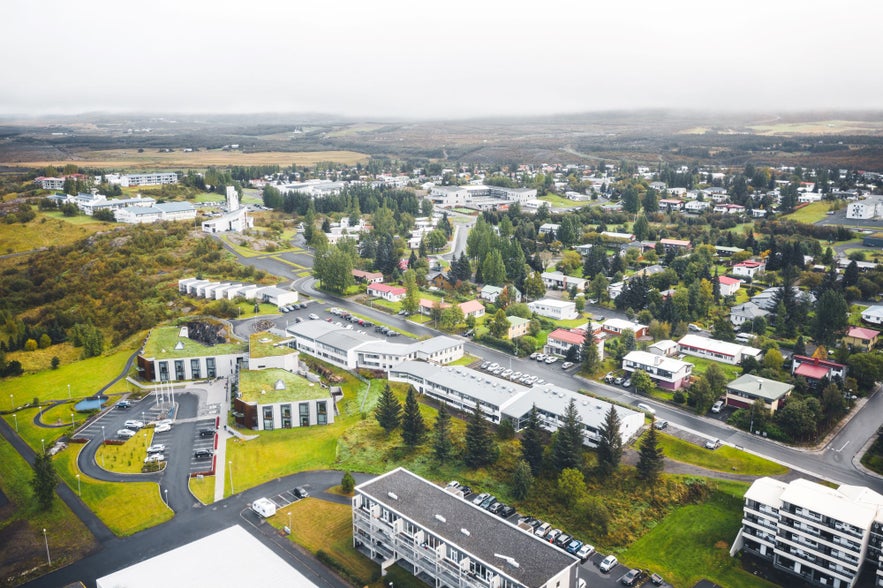 Egilsstadir is the largest town in East Iceland and a great base for travelers exploring the region. With Egilsstadir's local airport, the town offers visitors the option of flying to or from Reykjavik city instead of driving the approximate 415 miles (668 km) distance of the Ring Road.
Egilsstadir is the largest town in East Iceland and a great base for travelers exploring the region. With Egilsstadir's local airport, the town offers visitors the option of flying to or from Reykjavik city instead of driving the approximate 415 miles (668 km) distance of the Ring Road.
Compared to other towns in the East, Egilsstadir has a relatively larger population, allowing for more services in town, such as stores, bars, cafes, and restaurants. These services make Egilsstadir a convenient stopover while traveling through the East Coast of Iceland.
The town is a perfect starting point for a journey through the Eastfjords and is well connected to other major destinations, such as Akureyri to the north, Breiddalsvik to the south, and Borgarfjordur Eystri to the northeast.
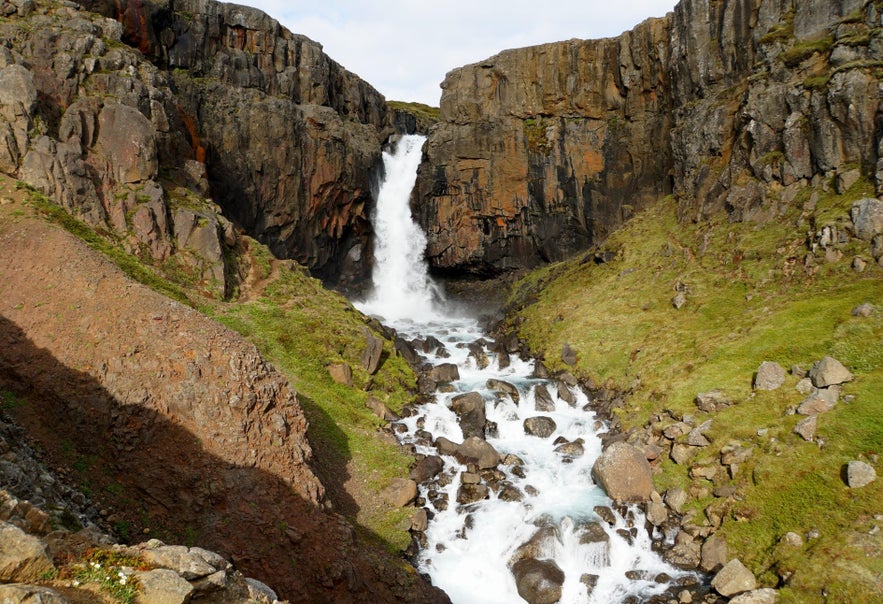
A worthwhile attraction to visit while in Egilsstadir is the East Iceland Heritage Museum. The museum is dedicated to portraying what life was like in the early days of the first settlers in the East, delving into their ancient beliefs and ways of life.
Also situated near the town is the beautiful Fardagafoss waterfall, which has a serene walking trail to the falls, allowing for a magnificent view from the top. If you are visiting in late August or early September, you can pick wild blueberries that grow around the hiking trail.
Be sure to book a hotel in the lovely town of Egilsstadir, which serves as a well-connected base for exploring the breathtaking Eastfjords.
Borgarfjordur Eystri
Borgafjordur Eystri is a fjord located on the East coast of Iceland, about 44 miles (70 km) from the town of Egilsstadir. It’s a region filled with natural beauty and significance in Icelandic folklore, known as a paradise for hikers due to its many hiking trails and comfortable hiking huts.
The fjord is only home to about 130 people, with its main settlement being Bakkagerdi village. Nested in the fjord, you will find Alfaborg, or the Elves Castle, a hill known in Icelandic folklore as the home of the queen of Iceland’s elves.
Borgafjordur Eystri is rich in Icelandic folklore, with tales of elves and hidden people playing a significant role in the local culture.
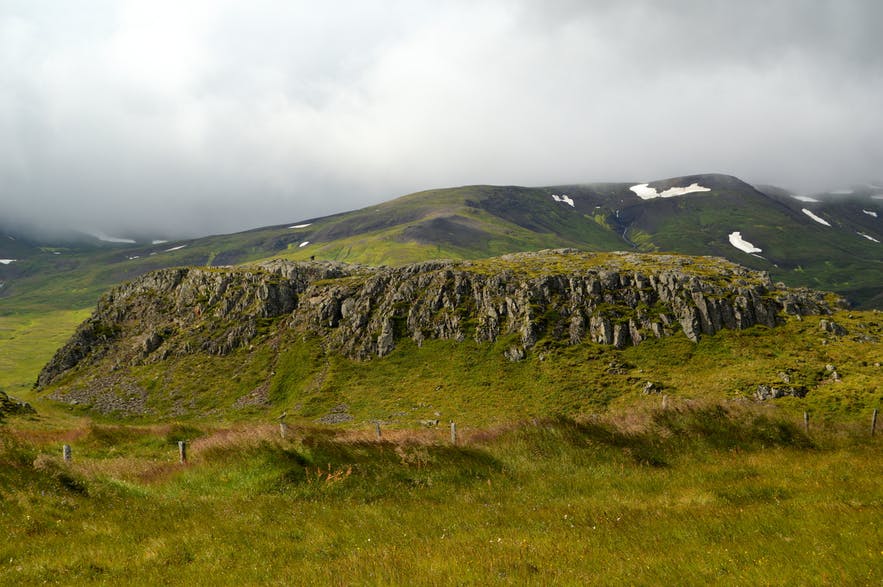
Photo by Regína Hrönn Ragnarsdóttir
The fjord is also a favorite location for bird enthusiasts, as one of the highlights of Borgarfjordur Eystri is its abundant birdlife. In particular, the fjord is known for the large puffin colony that settles close to the harbor during the summer months in an area called Hafnarholmi.
Visitors can get up close to these charming birds during the nesting season, making it one of the best places in Iceland for spotting puffins.
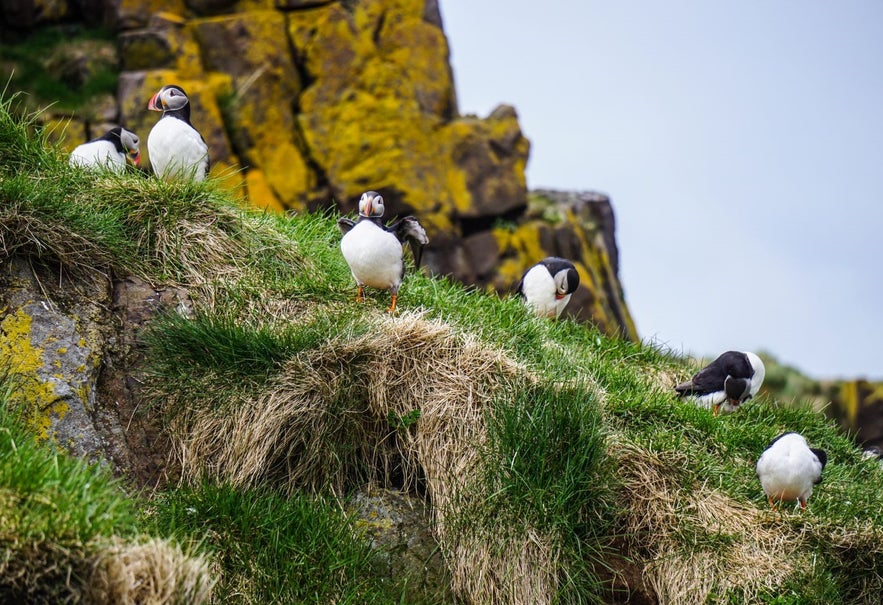
-
Read more about Folklore in Iceland
-
Discover Where to Find Puffins in Iceland
Breiddalsvik
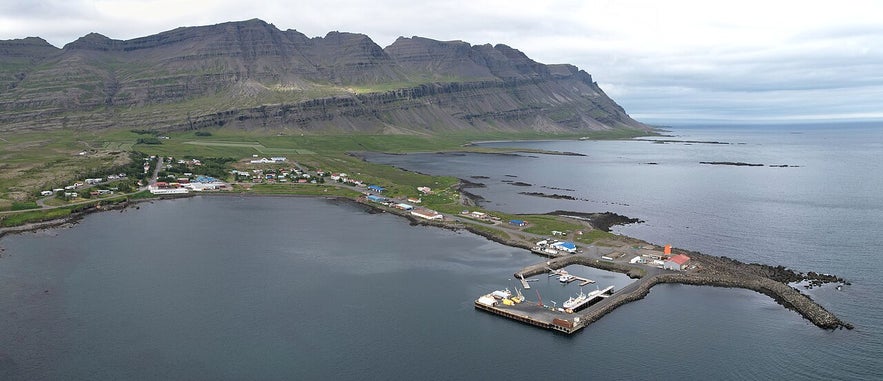
Photo from Wikimedia, Creative Commons, by Eysteinn Guðni Guðnason. No edits were made.
Breiddalsvik is a charming village in East Iceland with roots that go all the way back to the 1880s. The village experienced significant growth during the 1960s when its harbor was developed, transforming it into a vibrant fishing community.
Nestled in the Breiddalur, the longest and widest valley in East Iceland, Breiddalsvik has a unique blend of a beautiful coast with black sand beaches and towering mountains surrounding the village.
One of the town's surprising attractions is its arctic forest. When the first settlers arrived in Iceland, the island was heavily forested. However, widespread deforestation occurred as settlers cleared the land, and they were unaware that Icelandic pine grows much slower than its European counterparts.
Today, efforts to restore some of these forests are underway, with Jorvikurskogur forest in Breiddalsvik as a prime example. This forest has a campsite with scenic views of the Breiddalsa river, known for its excellent salmon fishing.
Breiddalsvik's mix of history, natural landscapes, and ongoing reforestation efforts makes it a unique stop to explore while traveling through the Eastfjords. Find a cozy accommodation in Breiddalsvik to experience the tranquility this beautiful town has to offer.
Djupivogur
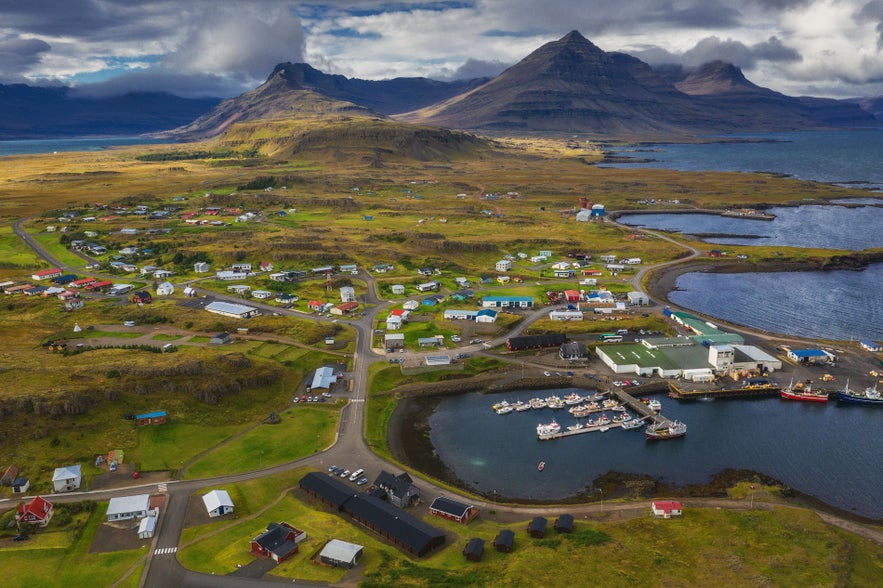
Djupivogur is the southernmost town in the East. Its coastline consists of three fjords: Berufjordur, Hamarsfordur, and Alftafjordur, with the town located on the peninsula between Berufjordur and Hamarsfjordur.
The town is home to the oldest weather station in Iceland, and it was here that the highest recorded temperature in Iceland, 86.9°F (30.5°C), was measured on June 22nd, 1939.
A pyramid-shaped mountain known as Bulandstindur is the visual landmark of the town, and like many other locations in the Eastfjords, it is filled with stories of local folklore. According to legend, Bulandstindur mountain can grant wishes on the year's longest day, the Summer Solstice.
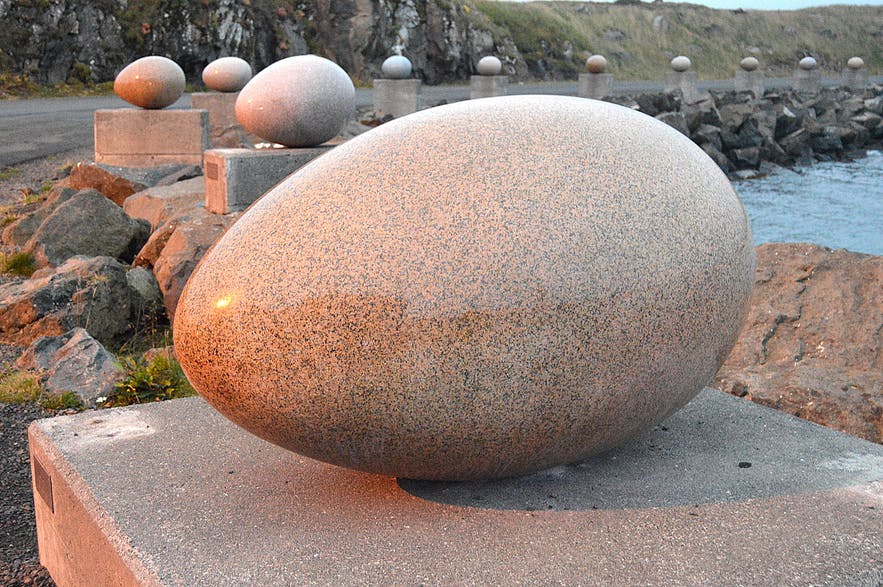
Photo by Regína Hrönn Ragnarsdóttir
The town also showcases local art, with one example found near the center of Djupivogur: an outdoor sculpture by Icelandic artist Sigurdur Gudmundsson called Eggin í Gledvik, which consists of 34 large eggs lined up along the coastline.
Like much of the Eastfjords, the area surrounding Djupivogur is filled with natural beauty and is a favorite nesting spot for local bird life.
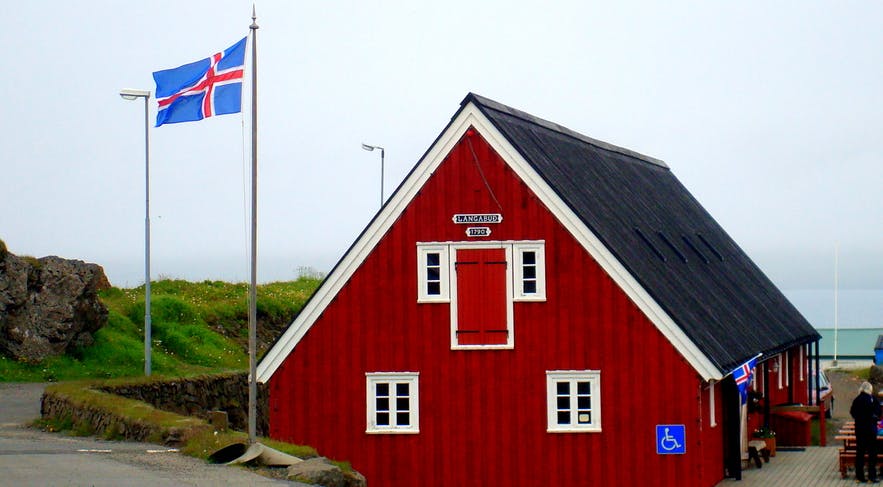
Photo by Regína Hrönn Ragnarsdóttir
Make sure to book your stay in Djupivogur and visit all the important landmarks of this charming town while traveling through the Eastfjords. A great spot is, for example, the oldest house in the town, which was built in 1780 and is now a cultural center, a heritage museum, a coffee shop, and art displays from local artists.
Eskifjordur
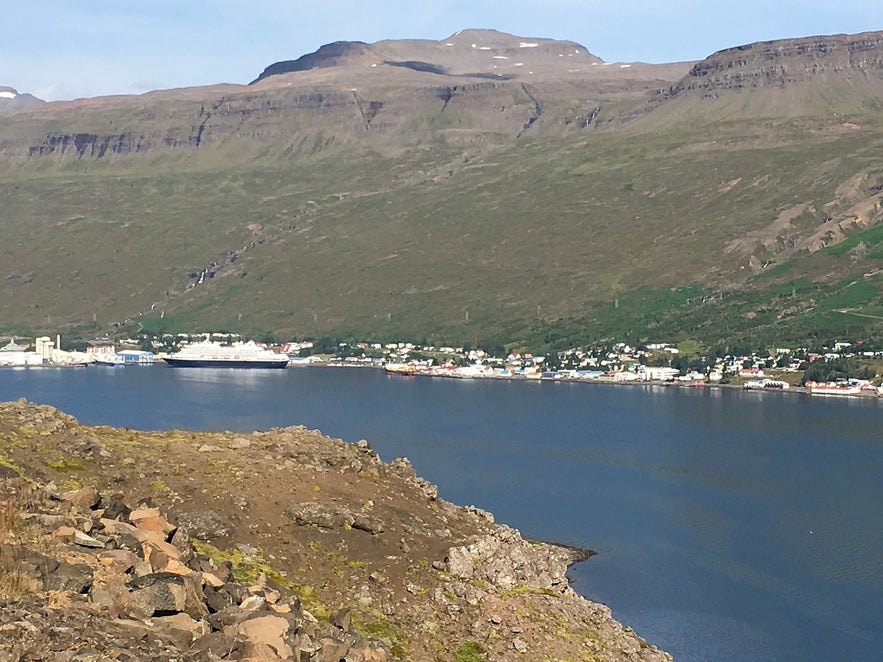
Eskifjordur is a fishing town known for its rich maritime history, becoming an official trading post in 1789. Two impressive mountains, Eskja and Holmatindur, frame this beautiful town and create its dramatic landscape.
The town has an interesting museum in the town's center called the East Iceland Maritime Museum, located in a few well-preserved buildings from the 1800s. The buildings have remained mostly unchanged since 1890, and nowadays, the museum focuses on celebrating the old fishing trade combined with modern culinary experiences. Visitors to the museum can dine in its restaurant and enjoy traditional Icelandic dishes while learning about the region's maritime history.
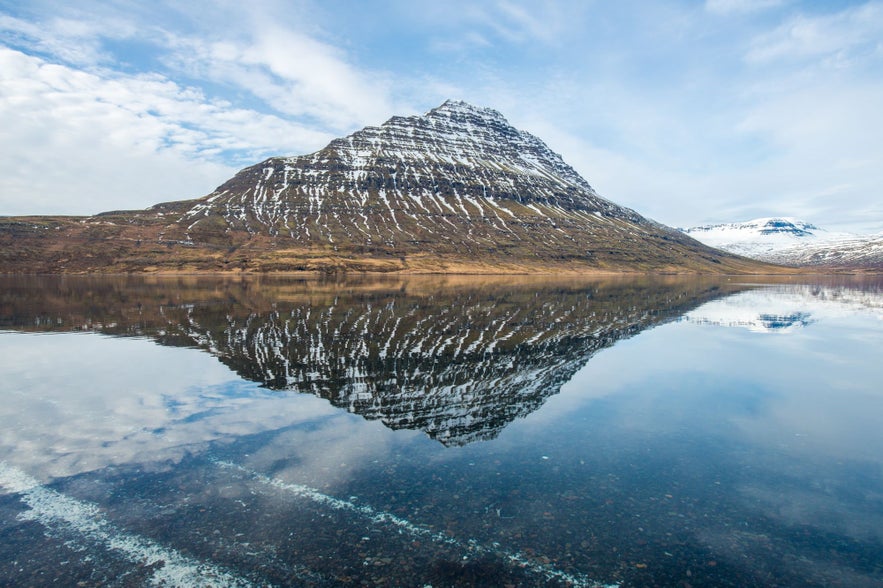 Eskifjordur is also known for its rich and diverse geology, which is quite significant. Not far from the town, some of the world’s largest spar crystals have been excavated in a local mine, and there are at least two exhibitions of large private stone collections that are possible to visit while in the town.
Eskifjordur is also known for its rich and diverse geology, which is quite significant. Not far from the town, some of the world’s largest spar crystals have been excavated in a local mine, and there are at least two exhibitions of large private stone collections that are possible to visit while in the town.
One of the stone exhibitions is exhibited in Soren and Sigurborg's home. They became interested in rock collection in 1976 as the pair were passing a site where an avalanche had occurred in Reydarfjordur fjord. There, they came across some large Jasper stones and were inspired to start collecting rare stones and crystals from the area, which became a lifelong hobby. Today, their collection has over 1000 stones that have been cut and polished, and each stone is displayed for the public in their home.
If you would like to spend some time in this lovely town, make sure to book your hotel in Eskifjordur in advance, as the town has very few hotels and guesthouses.
Faskrudsfjordur
Faskrudsfjordur is the easternmost settlement in Iceland, located in the center of the Eastfjords and between the Vattarnes and Hafnarnes peninsulas. It was known as Budir or Budakauptun in the past, but most locals currently use its new name.
Historically, the town became an important trading post in 1880, and in the latter part of the 19th century, the town developed a close relationship with the nation of France.
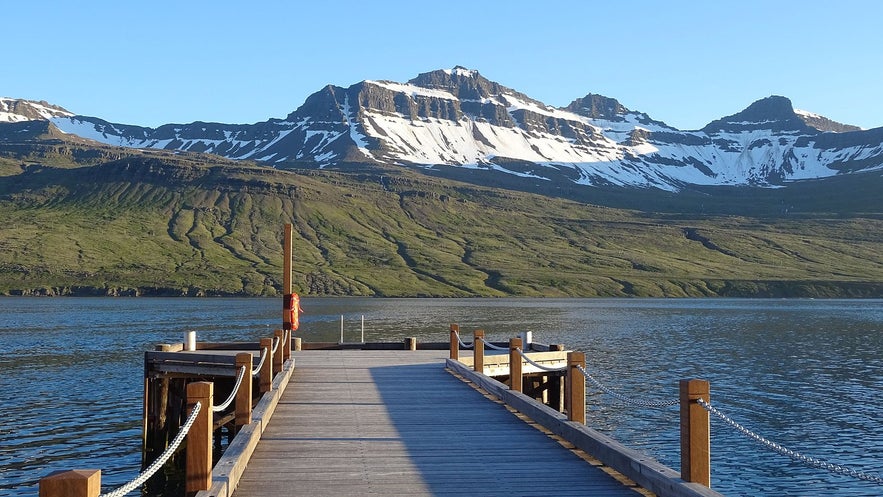
Photo from Wikimedia, Creative Commons, by VillageHero. No edits were made.
In 1903, France built a hospital in Faskrudsfjordur to aid French fishermen. This hospital was used until 1935 and was notoriously believed to be haunted. Abandoned for over 50 years, the building declined significantly until 2008, when locals decided to restore it to preserve its history.
Due to this extended relationship, Faskrudsfjordur is known for its French heritage, and to this day, many of the street signs are still in French.
Visiting the French museum will give travelers a glimpse into the French community that once thrived there, as the town used to have a French consul, a French hospital, and a French chapel.
The natural landscape of the area surrounding Faskrudsfjordur is something not to be missed while traveling in the Eastfjords. The drive through the coast offers an excellent scenic view of the island of Skrudur, known for being a paradise for local birdlife and often referred to as the puffin cave due to the large number of Arctic Puffins that nest in it during the summer.
-
See also: Wildlife and Animals in Iceland
-
Read more about The French Museum in Faskrudsfjordur
Mjoifjordur
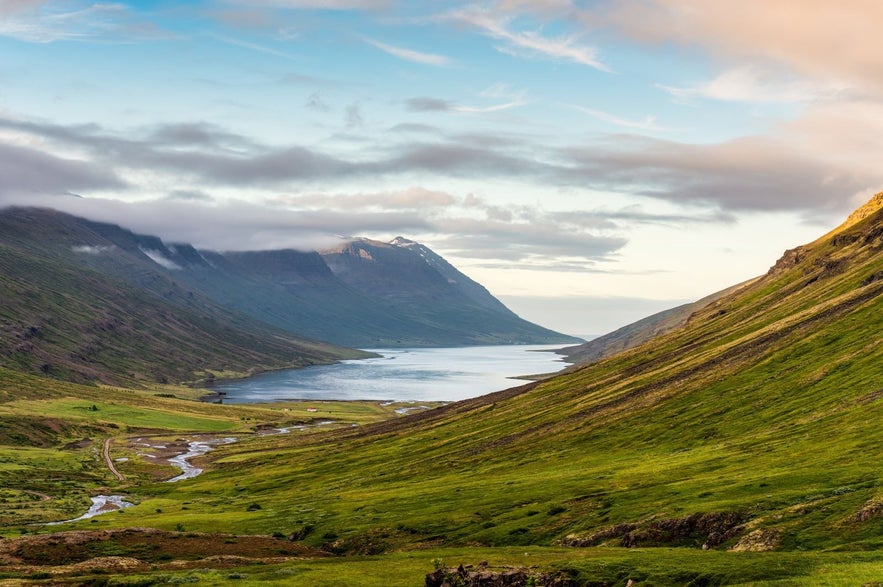 Mjoifjordur is often referred to as one of the smallest towns in Iceland, home to only about ten people year-round. It is located between Nordfjordur and Seydisfjordur towns, and its name translates to ‘The narrow fjord.'
Mjoifjordur is often referred to as one of the smallest towns in Iceland, home to only about ten people year-round. It is located between Nordfjordur and Seydisfjordur towns, and its name translates to ‘The narrow fjord.'
The town is known as a peaceful place with a lot of history and good weather during the summer months. However, during the winter, the road that leads to the fjord is often closed, making the town only accessible by a boat called Fjardarferdir, which sails from Nordfjordur.
Mjoifjordur is home to a beautiful waterfall called Klifbrekkufossar, which serenely cascades down from the mountain, creating a magical sight that can be seen from the road.
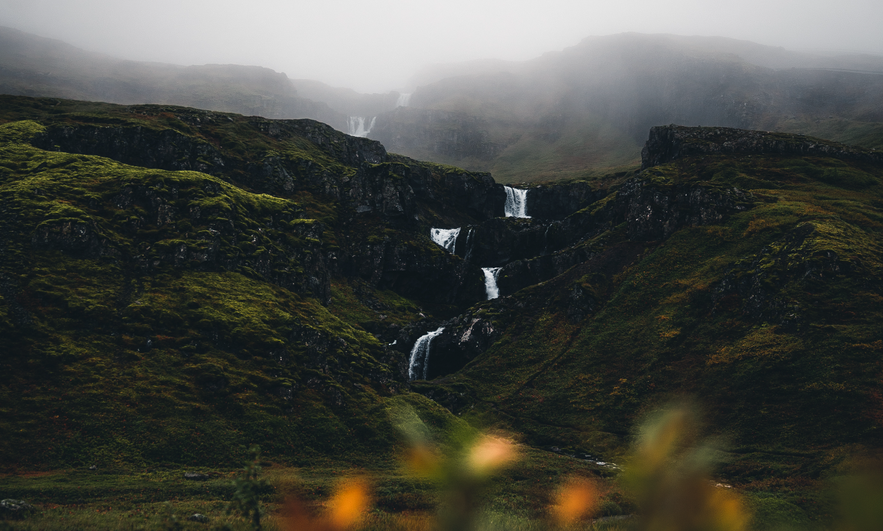
Mjoifjordur has many interesting locations to visit, like the small inlet in the town called Smjorvogur, which was once used as a prison because there was only one way in and out. It also has the remains of an old Norwegian whaling station, which, at one point, was the largest whaling station in the world. In the early 1900s, the station had over 200 workers, significantly contrasting to modern-day Mjoifjordur, which now only has around ten inhabitants.
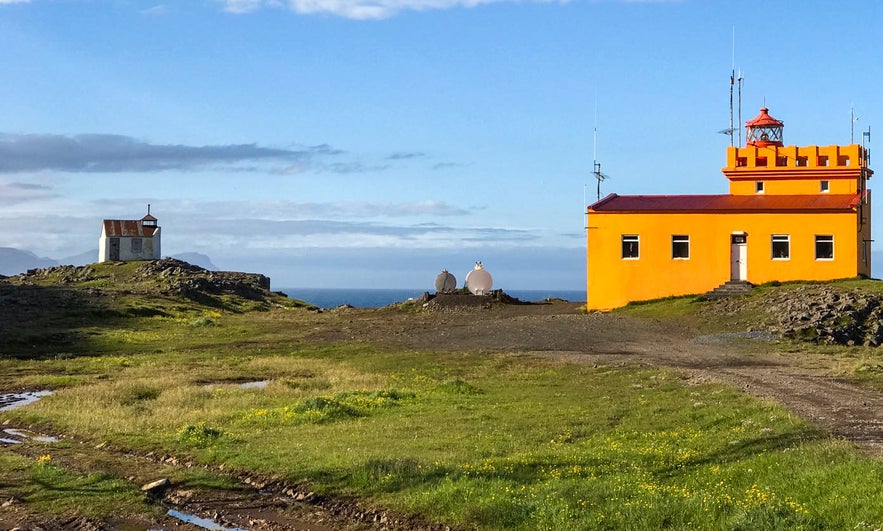
Photo from Wikimedia, Creative Commons, by Jkuelh
Another beautiful sight in Mjoifjordur is the Dalatangi lighthouse, which has a characteristic orange color and a beautiful location by the shore. The town has many sights that allow for incredible photo opportunities and is an ideal location for travelers seeking peace and tranquillity.
Neskaupstadur
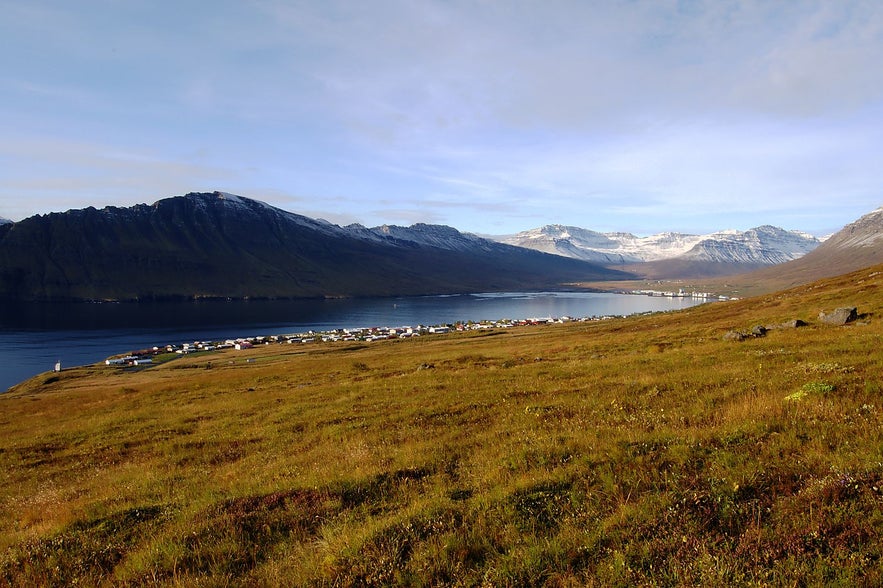
Photo from Wikimedia, Creative Commons, by Christoph L. Hess. No edits were made.
Neskaupstadur is a vibrant town that combines history, socialism, and hard rock. Until 1949, this town was incredibly remote, only being accessible by boat. Today, a trip into the town involves a unique drive through a winding, 0.39-mile (626-meter), single-lane tunnel.
The town was once called ‘Little Moscow’ due to its strong socialist values, but today, it is more famous for its vibrant music and art scene. Neskaupstadur is home to a rock, blues, and jazz club called Brjan, and the town also hosts the most significant metal music festival in Iceland each year, called Eistnaflug.
Each July, the Eistnaflug Metal Music Festival brings fans of hardcore metal from all over the country to Neskaupstadur. The festival started in 2005 as a small, one-day event but since has grown into a three-day affair, hosting some of the country's best-known metal bands.
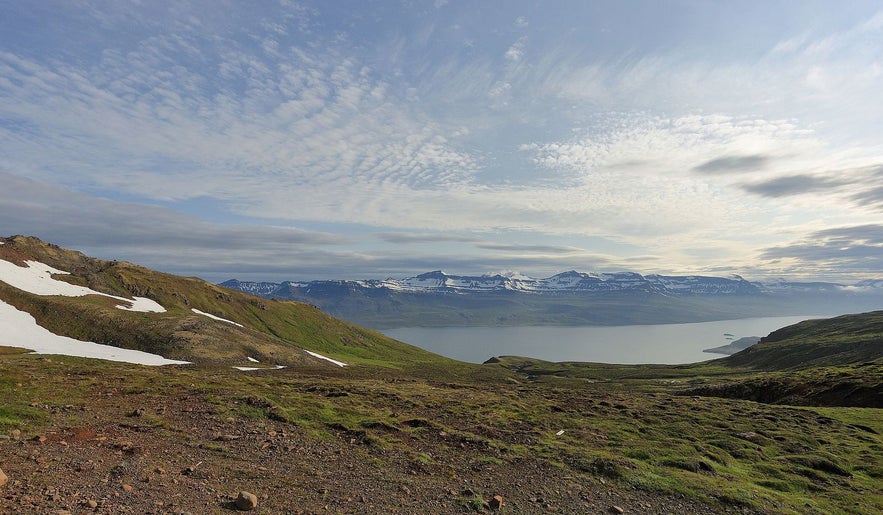
Photo from Wikimedia, Creative Commons, by Marin Falbisoner. No edits were made.
If you are interested in getting to know the local history, Neskaupstadur’s local museum offers information about natural history and showcases maritime artifacts, as well as an art gallery all in one. The art gallery section hosts art by one of Iceland’s most celebrated artists, Tryggvi Olafsson.
The stunning nature surrounding Neskaupstadur is filled with spectacular views, including the Paskahellir cave, or Easter Cave, located by the coast, and the incredible Raudubjorg cliffs, a beautiful reddish cliff face overlooking the ocean.
-
Discover the Top 20 Festivals in Iceland
Reydarfjordur
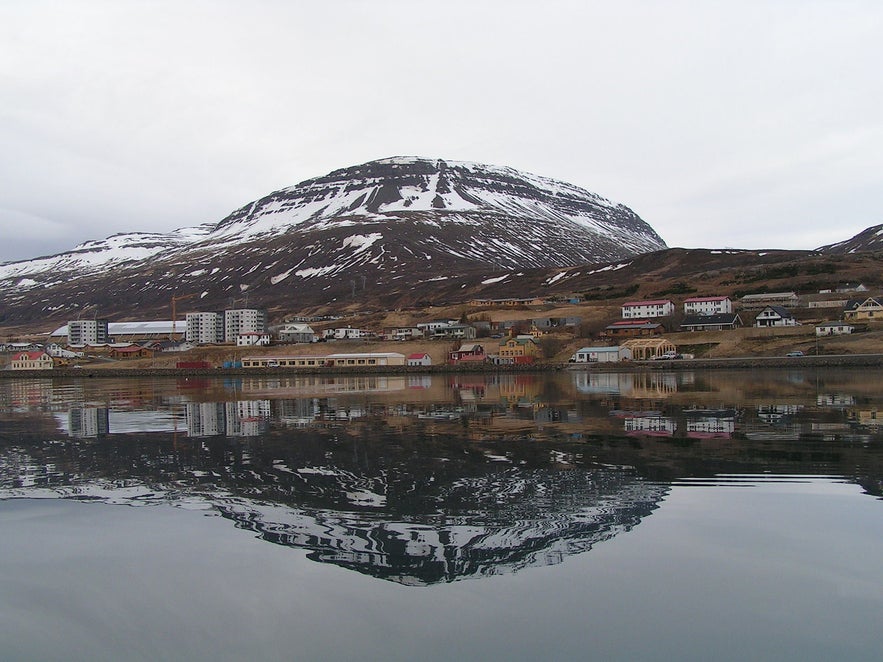
Photo from Wikimedia, Creative Commons, by Tristan Ferne. No edits were made.
Like most towns in the Eastfjords, Reydarfjordur is surrounded by beautiful mountains. The town is in the longest and widest fjord in Iceland’s east, stretching for more than 19 miles (30 km). Due to its strategic location, Reydarfjordur has been a popular trading port since the early 20th century.
During World War II, British forces occupied the town, and the remains of this occupation are still visible today. Visitors can witness remnants of the forces, from old gun shelters to barracks and an airport built during this time period.
Since 1995 a wartime museum was established. Such a museum is an interesting tourist attraction in Iceland, considering the nation has never officially been at war.
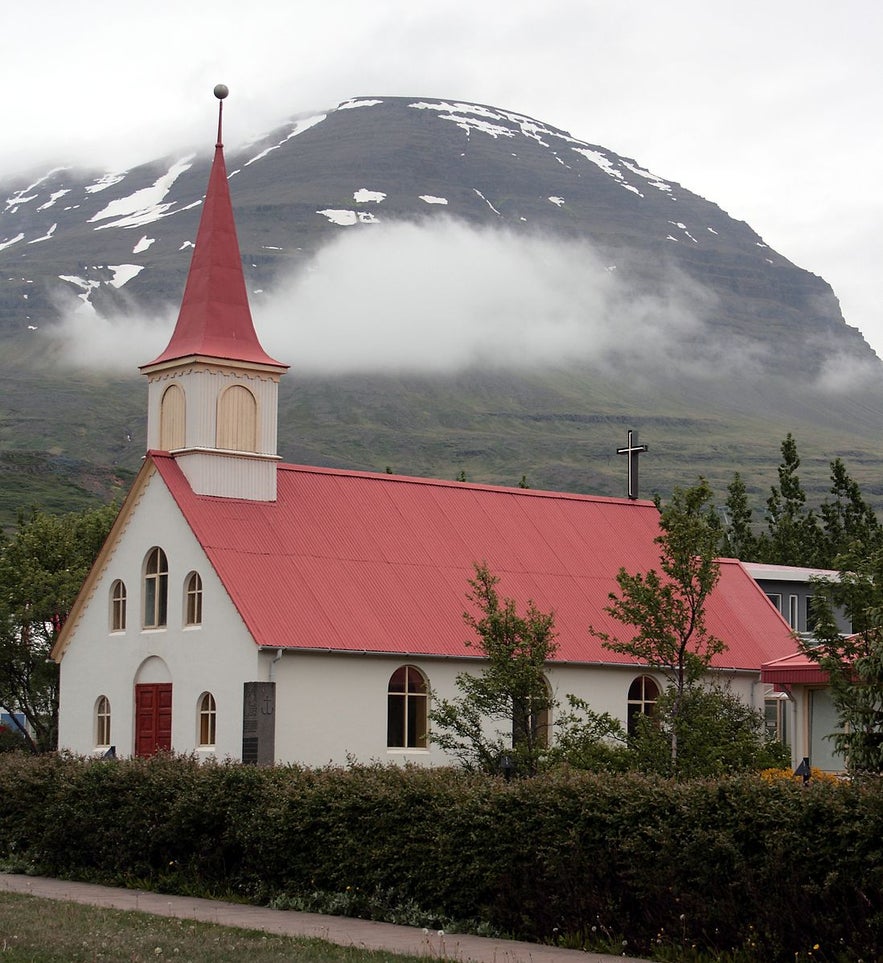
Photo from Wikimedia, Creative Commons, by Hedwig Storch. No edits were made.
Sightseeing and hiking are major attractions in Reydarfjordur. One of the most popular hiking trails is the one that leads to Budara waterfall and canyon, a great trail for taking incredible photos. Another popular hiking trail leads to the town center and is affectionately called ‘Love Lane.’
The town is home to a beautiful canyon called Geithusaa Canyon, which is filled with greenery and large boulders that could easily be mistaken for elf homes. This area is rich in Icelandic folklore and one of the most popular walking paths in Reydarfjordur.
Seydisfjordur
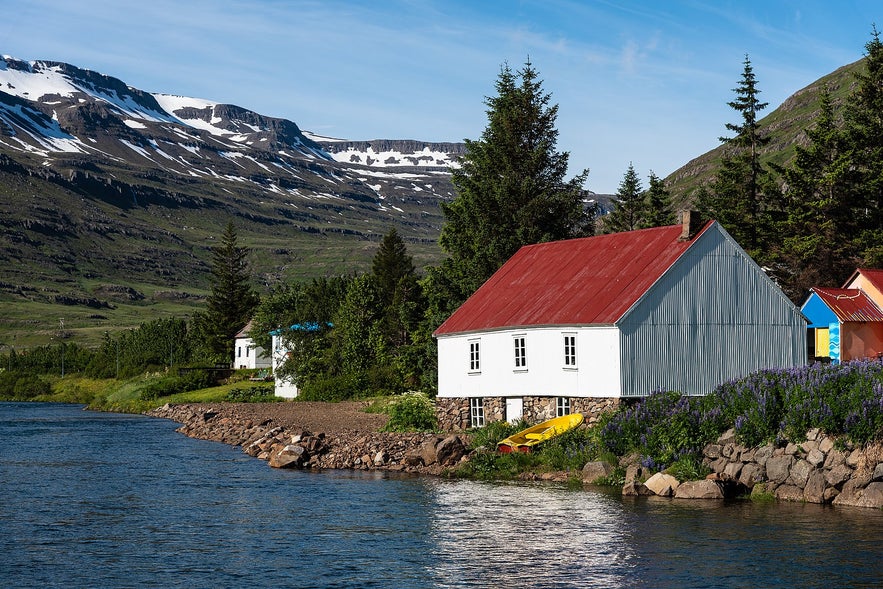
Photo from Wikimedia, Creative Commons, by Joe deSousa. No edits were made.
Seydisfjordur is a colorful town surrounded by mountains and filled with waterfalls, art, and history. A stay in the center of the town will allow you to be surrounded by spectacular cliffs and magnificent falls.
Due to the location of the harbor by the coastline, the town was originally settled by Norwegian fishermen. This can be seen reflected in the town’s architecture, as many Norwegian-style wooden houses still stand from the early 20th century.
During summer, Seydisfjordur becomes an arts hub for the East of Iceland. One of the most popular art events in town is The LungA Arts Festival, which brings many people to the town each year. The festival began in 2000 as a small gathering of artists and has since become a massive festival with performances, exhibitions, and workshops.
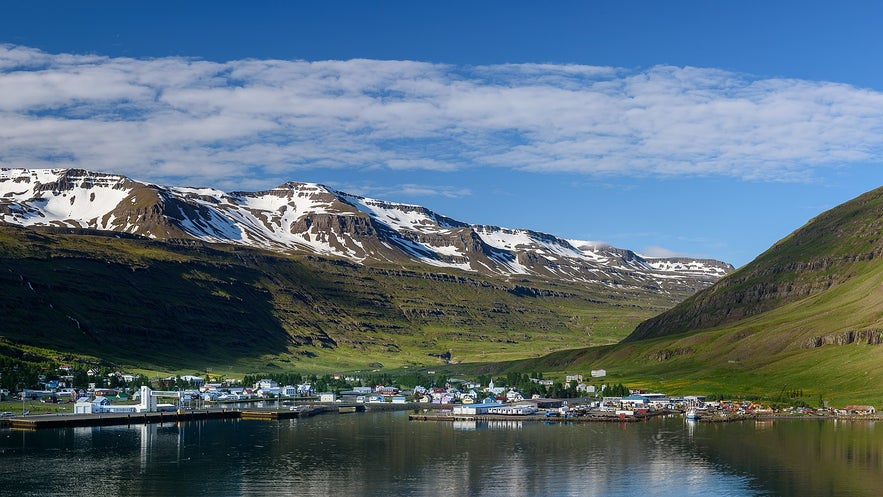 Photo from Wikimedia, Creative Commons, by Joe deSousa. No edits were made.
Photo from Wikimedia, Creative Commons, by Joe deSousa. No edits were made.
One of Seydisfjordur's main streets is Ranagata, a pedestrian street lined with unique, colorful buildings that make it look like a movie set. The street is one of the most popular landmarks because it has a rainbow-painted walking path that leads to the town's quaint blue church.
As with much of the Eastfjords, during the warmer months, the mountains and cliffs surrounding Seydisfjordur are great areas for hiking and spotting wildlife, including the popular puffins. If you plan on staying in this lovely town, make sure to book a hotel in Seydisfjordur.
Stodvarfjordur
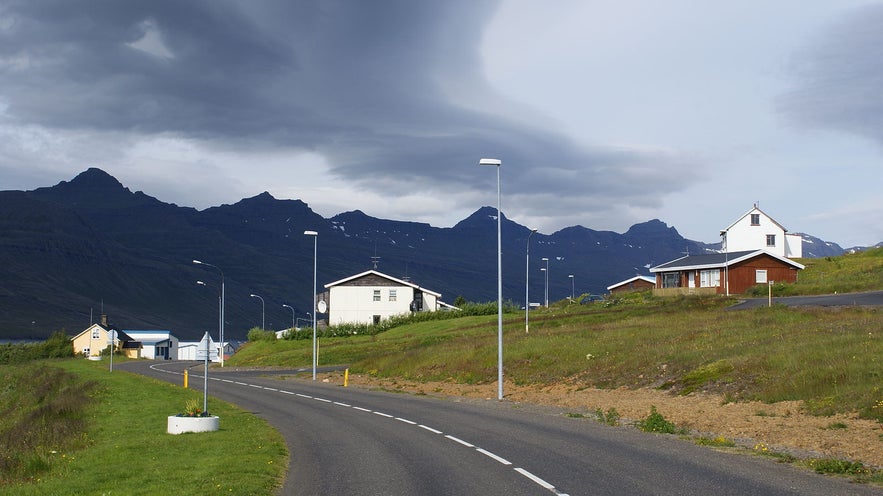
Photo from Wikimedia, Creative Commons, by Algkalv. No edits were made.
Stodvarfjordur is a small town in the Easfjords known for its Viking archaeology and precious stones. The first people to dwell in this quaint town are believed to date back to the year 800 and the reason for this is that an archaeological dig revealed two Viking longhouses in the area dating to that time period. However, experts believe that the area was used as a seasonal stopover and not a permanent settlement.
The town has mountains surrounding it, the main ones being Stedji mountain to the north, Sulur mountain to the south, and the nearby Hellufjall mountain.
Nature lovers will enjoy visiting Stodvarfjordur because the town and its surroundings are filled with incredible sights and hiking areas. One of these leads to the river Stodvara, which joins the ocean to the bottom of the fjord and has several waterfalls along its path.
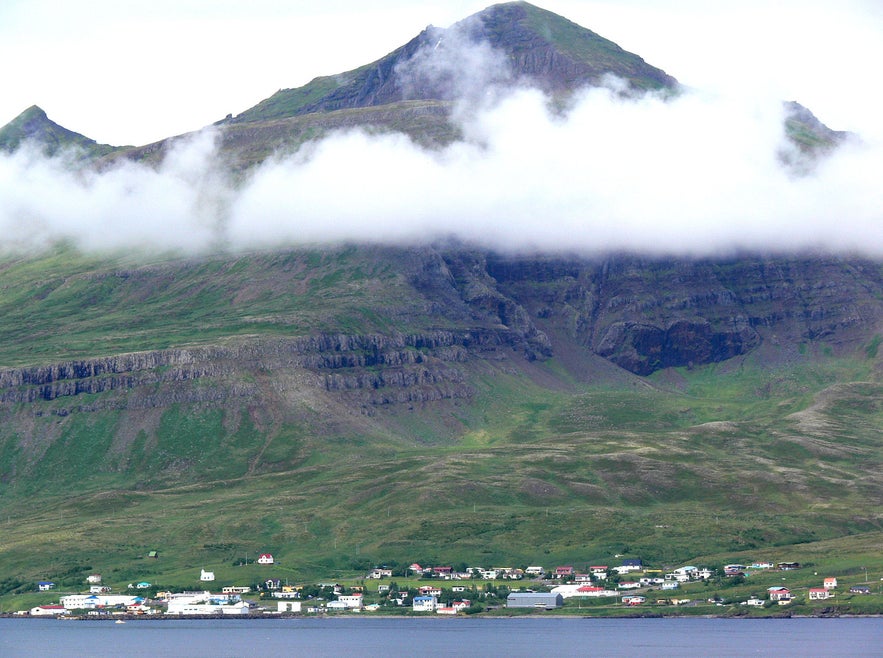
Photo from Wikimedia, Creative Commons, by Christian Bickel. No edits were made.
A popular attraction in the town is Petra’s stone collection. This building contains a quirky and beautifully maintained garden, the life’s work of the late Petra Maria, a local woman.
Petra was born on Christmas Eve in 1922 on the northern shores of Stodvarfjordur. When she and her husband moved into their house in the 1940s, Petra began to collect stones and minerals from the surrounding area and display them in her garden.
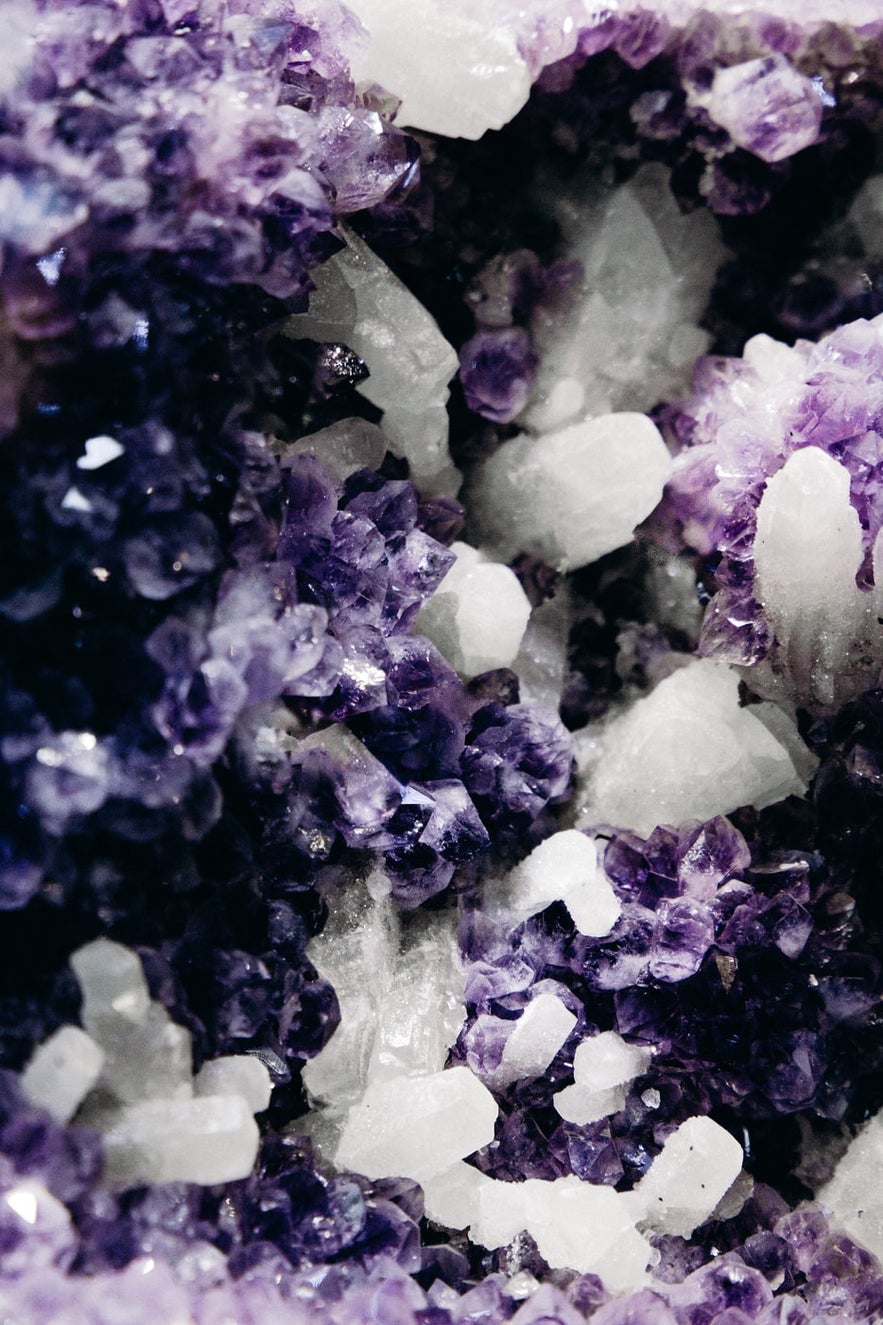
Photo from Klara Kulikova
Decades later, her home is a fascinating geological museum presented for curious guests. Petra collected her stones based on their beauty alone, but throughout her lifetime, she became known in scientific circles for the incredible specimens she had found. She passed away in 2012 after a long and active life, and today, her home is open to visitors from May to October.
Stodvarfjordur is a small town in the Easfjords ideal for nature exploration, wildlife and to get to know the locals way of life.
Vopnafjordur
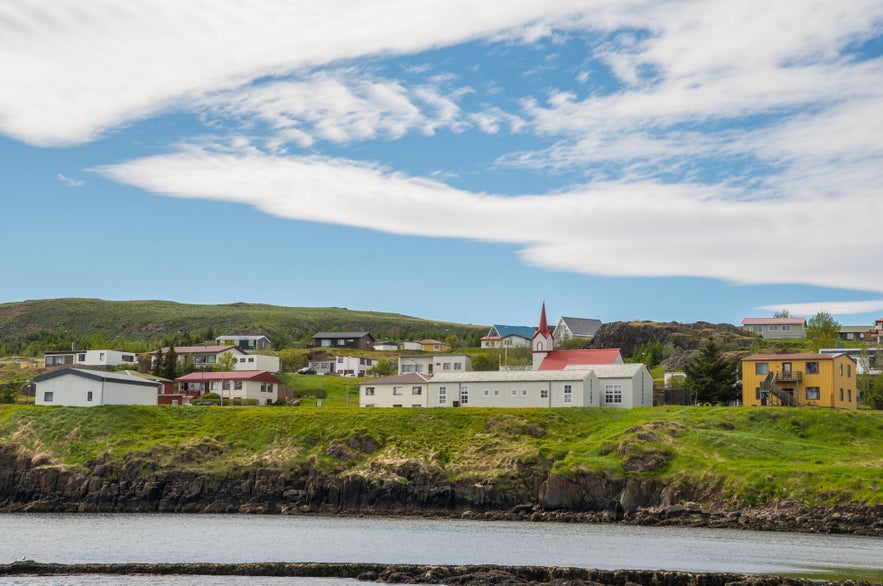 Vopnafjordur has been a favourite town to visit for celebrities and even royalty for years. It sits in a wide fjord that separates the headlands of Digranes and Kollumuli. The fjord is also the point where two large bays join: Heradsfloi to the south and Bakkafloi to the north.
Vopnafjordur has been a favourite town to visit for celebrities and even royalty for years. It sits in a wide fjord that separates the headlands of Digranes and Kollumuli. The fjord is also the point where two large bays join: Heradsfloi to the south and Bakkafloi to the north.
A vast mountain called Krossavikurfjoll overlooks Vopnafjordur to the south. This gigantic mountain towers 3540 feet (1,079 m) above sea level and almost seems like a stone guardian over the town.
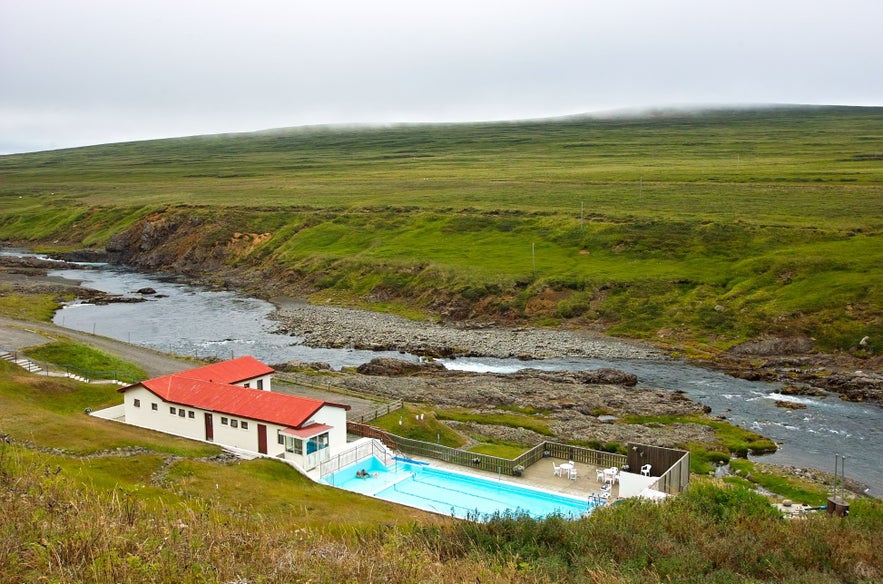
In the center of town, you will find a museum dedicated to the locals who left this region for Canada after the Askja volcano erupted in 1875. The fallout from this eruption poisoned livestock and damaged crops, leaving many with no choice but to move on and start a new life elsewhere.
In the years since, the town has thrived and has become a desired holiday getaway for the likes of Charles, Prince of Wales, George Bush, Sr. Jack Nicklaus, and Queen Paola of Belgium.
Vopnafjordur also has a great swimming pool on the banks of the Sela river called Selardalslaug pool, where locals and visitors frequently relax in the warm, mineral-rich water.
-
See also: Best Swimming Pools in Iceland
Map of the 12 towns in the Eastfjords
Weitere interessante Artikel

Die 20 besten Festivals in Island
Entdecke die besten Feste in Island und was sie so einzigartig macht. Welche isländischen Festivals sind die größten? Welches sind die besten Festivals in Reykjavik? Und wann und wo finden die Festi...Weiterlesen
Ausbrüche des Sundhnukagigar-Vulkans 2024 | Der komplette Guide
Erfahre alles über die Vulkanausbrüche 2024 am Sundhnukagigar in Island. Was bedeuten sie für die Menschen in Grindavik? Wie stark sind die Ausbrüche im Vergleich zu anderen Ausbrüchen der letzten Zei...Weiterlesen
Island im Herbst – Der ultimative Reiseführer
Der Herbst in Island ist eine magische Zeit, in der sich die Natur in die verschiedensten Farben hüllt. Diese Saison ist daher ideal, um das Land zu erkunden. Entdecke unglaubliche Landschaften, beoba...Weiterlesen

Lade Islands größten Reisemarktplatz auf dein Handy herunter, um deine gesamte Reise an einem Ort zu verwalten
Scanne diesen QR-Code mit der Kamera deines Handys und klicke auf den angezeigten Link, um Islands größten Reisemarktplatz in deine Tasche zu laden. Füge deine Telefonnummer oder E-Mail-Adresse hinzu, um eine SMS oder E-Mail mit dem Download-Link zu erhalten.



